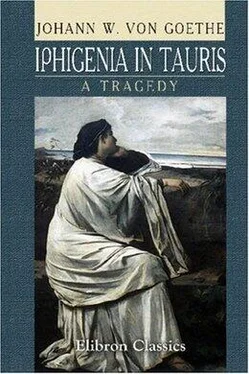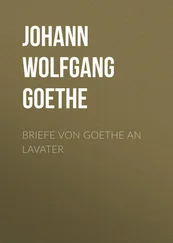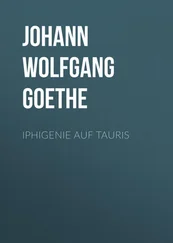IPHIGENIA.
The well–intention'd counsel troubles me:
His offer studiously I've sought to shun.
ARKAS.
Thy duty and thy interest calmly weigh.
Since the king lost his son, he trusts but few,
Nor those as formerly. Each noble's son
He views with jealous eye as his successor;
He dreads a solitary, helpless age,
Or rash rebellion, or untimely death.
A Scythian studies not the rules of speech,
And least of all the king. He who is used
To act and to command, knows not the art,
From far, with subtle tact, to guide discourse
Through many windings to its destin'd goal.
Do not embarrass him with shy reserve
And studied misconception: graciously,
And with submission, meet the royal wish.
IPHIGENIA.
Shall I then speed the doom that threatens me?
ARKAS.
His gracious offer canst thou call a threat?
IPHIGENIA.
'Tis the most terrible of all to me.
ARKAS.
For his affection grant him confidence.
IPHIGENIA.
If he will first redeem my soul from fear.
ARKAS.
Why dost thou hide from him thy origin?
IPHIGENIA.
A priestess secrecy doth well become.
ARKAS.
Nought to our monarch should a secret be;
And, though he doth not seek to fathom thine,
His noble nature feels, ay, deeply feels,
That studiously thou hid'st thyself from him.
IPHIGENIA.
Displeasure doth he harbour 'gainst me, then?
ARKAS.
Almost it seems so. True, he speaks not of thee.
But casual words have taught me that the wish
To call thee his hath firmly seiz'd his soul;
Oh, do not leave the monarch to himself!
Lest his displeasure, rip'ning in his breast,
Should work thee woe, so with repentance thou
Too late my faithful counsel shalt recall.
IPHIGENIA.
How! doth the monarch purpose what no man
Of noble mind, who loves his honest name,
Whose bosom reverence for the gods restrains,
Would ever think of? Will he force employ
To tear me from this consecrated fane?
Then will I call the gods, and chiefly thee,
Diana, goddess resolute, to aid me;
Thyself a virgin, thou'lt a virgin shield,
And succour to thy priestess gladly yield.
ARKAS.
Be tranquil! Passion, and youth's fiery blood
Impel not Thoas rashly to commit
A deed so lawless. In his present mood,
I fear from him another harsh resolve,
Which (for his soul is steadfast and unmov'd,)
He then will execute without delay.
Therefore I pray thee, canst thou grant no more,
At least be grateful—give thy confidence.
IPHIGENIA.
Oh tell me what is further known to thee.
ARKAS.
Learn it from him. I see the king approach;
Thou honour'st him, and thy own heart will prompt thee
To meet him kindly and with confidence.
A noble man by woman's gentle word
May oft be led.
IPHIGENIA,
alone
.
I see not how I can
Follow the counsel of my faithful friend.
But willingly the duty I perform
Of giving thanks for benefits receiv'd,
And much I wish that to the king my lips
With truth could utter what would please his ear.
SCENE III.
IPHIGENIA. THOAS.
IPHIGENIA.
Her royal gifts the goddess shower on thee!
Imparting conquest, wealth, and high renown,
Dominion, and the welfare of thy house,
With the fulfilment of each pious wish,
That thou, who over numbers rul'st supreme,
Thyself may'st be supreme in happiness!
THOAS.
Contented were I with my people's praise;
My conquests others more than I enjoy.
Oh! be he king or subject, he's most blest,
Who in his home finds happiness and peace.
Thou shar'dst my sorrow, when a hostile sword
Tore from my side my last, my dearest son;
Long as fierce vengeance occupied my heart,
I did not feel my dwelling's dreary void;
But now, returning home, my rage appeas'd,
My foes defeated, and my son aveng'd,
I find there nothing left to comfort me.
The glad obedience, which I used to see
Kindling in every eye, is smother'd now
In discontent and gloom; each, pond'ring, weighs
The changes which a future day may bring,
And serves the childless king, because compell'd.
To–day I come within this sacred fane,
Which I have often enter'd to implore
And thank the gods for conquest. In my breast
I bear an old and fondly–cherish'd wish.
To which methinks thou canst not be a stranger;
Thee, maid, a blessing to myself and realm,
I hope, as bride, to carry to my home.
IPHIGENIA.
Too great thine offer, king, to one unknown;
Abash'd the fugitive before thee stands,
Who on this shore sought only what thou gav'st,
Safety and peace.
THOAS.
Thus still to shroud thyself
From me, as from the lowest, in the veil
Of mystery which wrapp'd thy coming here,
Would in no country be deem'd just or right.
Strangers this shore appall'd; 'twas so ordain'd
Alike by law and stern necessity.
From thee alone—a kindly welcom'd guest,
Who hast enjoy'd each hallow'd privilege,
And spent thy days in freedom unrestrain'd—
From thee I hop'd that confidence to gain
Which every faithful host may justly claim.
IPHIGENIA.
If I conceal'd, O king, my name, my race,
'Twas fear that prompted me, and not mistrust.
For didst thou know who stands before thee now,
And what accursed head thy arm protects,
A shudd'ring horror would possess thy heart;
And, far from wishing me to share thy throne,
Thou, ere the time appointed, from thy realm
Wouldst banish me perchance, and thrust me forth,
Before a glad reunion with my friends
And period to my wand'rings is ordain'd,
To meet that sorrow, which in every clime,
With cold, inhospitable, fearful hand,
Awaits the outcast, exil'd from his home.
THOAS.
Whate'er respecting thee the gods decree,
Whate'er their doom for thee and for thy house,
Since thou hast dwelt amongst us, and enjoy'd
The privilege the pious stranger claims,
To me hath fail'd no blessing sent from Heaven;
And to persuade me, that protecting thee
I shield a guilty head, were hard indeed.
IPHIGENIA.
Thy bounty, not the guest, draws blessings down.
THOAS.
The kindness shown the wicked is not blest.
End then thy silence, priestess; not unjust
Is he who doth demand it. In my hands
The goddess plac'd thee; thou hast been to me
As sacred as to her, and her behest
Shall for the future also be my law.
If thou canst hope in safety to return
Back to thy kindred, I renounce my claims:
But is thy homeward path for ever clos'd—
Or doth thy race in hopeless exile rove,
Or lie extinguish'd by some mighty woe—
Then may I claim thee by more laws than one.
Speak openly, thou know'st I keep my word.
IPHIGENIA.
Its ancient bands reluctantly my tongue
Doth loose, a long–hid secret to divulge;
For once imparted, it resumes no more
The safe asylum of the inmost heart,
But thenceforth, as the powers above decree,
Doth work its ministry of weal or woe.
Attend! I issue from the Titan's race.
Читать дальше












